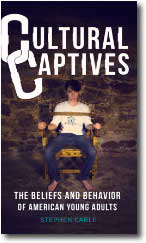October 3, 2013
The latest debate about science textbooks has surfaced a typical complaint about the scientific basis of intelligent design. Critics of intelligent design say that it is not science because it cannot be falsified. But nearly every critic then goes on to argue that intelligent design has been falsified. Obviously it can’t be both falsifiable and non-falsifiable at the same time. Such is the level of argumentation against intelligent design.
But there is another argument I find even more fascinating. It is that intelligent design cannot be considered science because it has religious implications. As I point out in my book, A Biblical Point of View on Intelligent Design, just because an idea has religious (or philosophical implications) shouldn’t necessarily disqualify it from scientific consideration. There are significant religious and philosophical implications for Darwinian evolution. Consider just a few of these.
Oxford biologist Richard Dawkins believes that Darwinian evolution provides the foundation for his atheism and claims that “Darwin made it possible to be an intellectually fulfilled atheist.”
Daniel Dennett says: “In the beginning, there were no reasons; there were only causes. Nothing had a purpose, nothing has so much as a function; there was no teleology in the world at all.”
Princeton bioethicist Peter Singer argues that we must “face the fact that we are evolved animals and that we bear the evidence of our inheritance, not only in our anatomy and our DNA, but in our behavior too.”
Each of these men draws religious or philosophical inferences from the theory of evolution. Does that disqualify evolutionary theory? Is evolution unscientific because there are religious and philosophical implications? No. Likewise, intelligent design’s possible implications should not render it unscientific.
